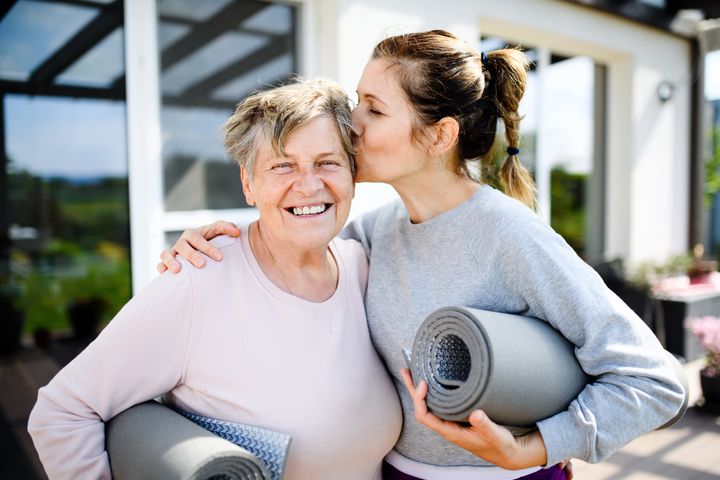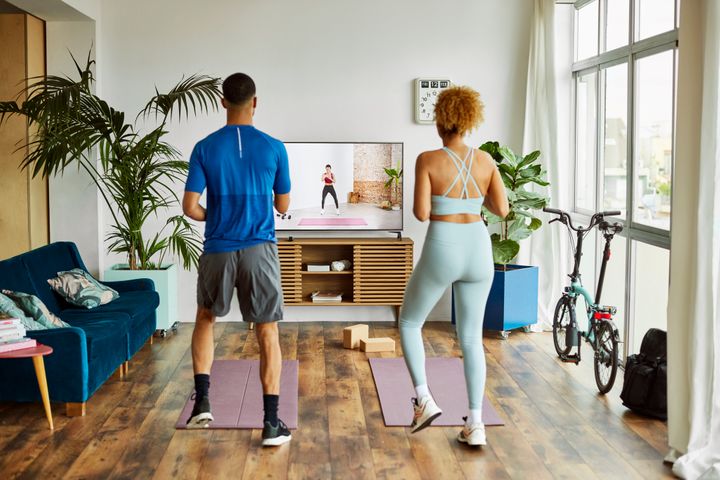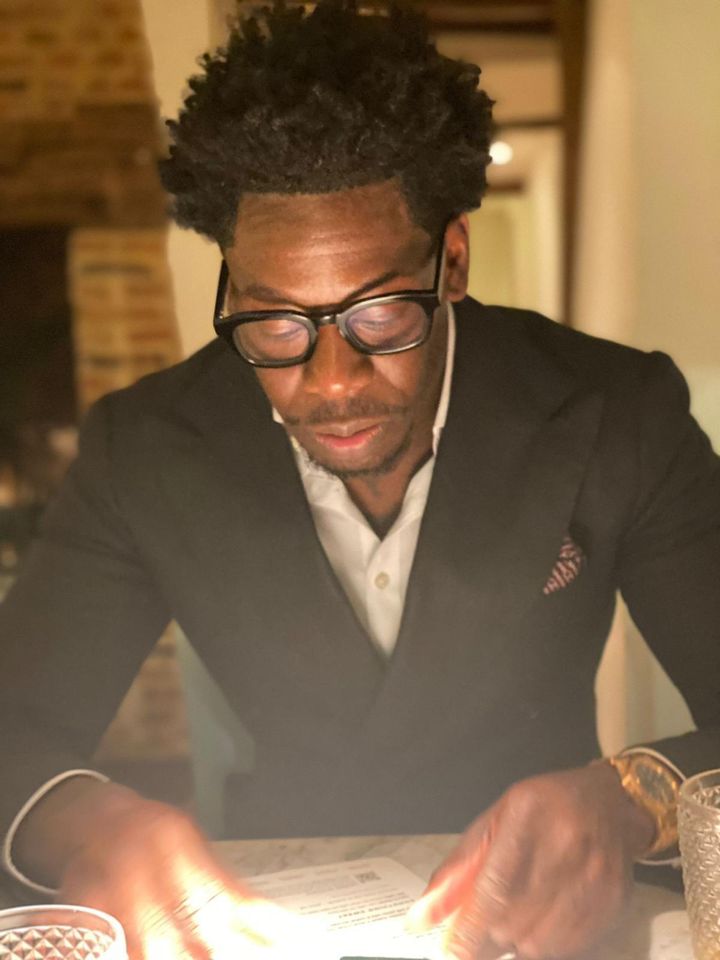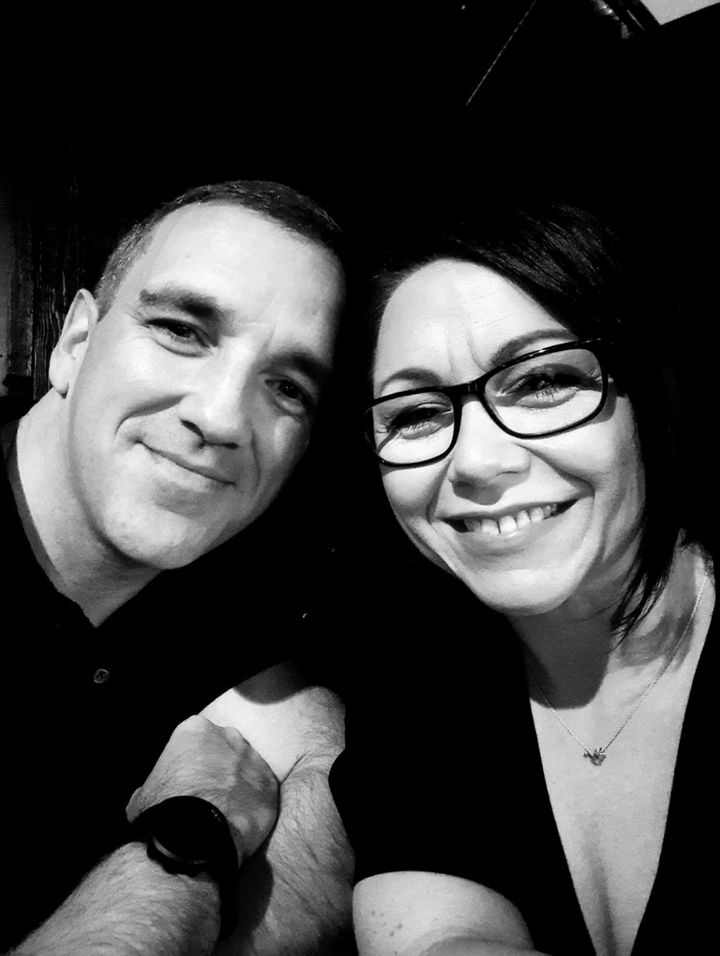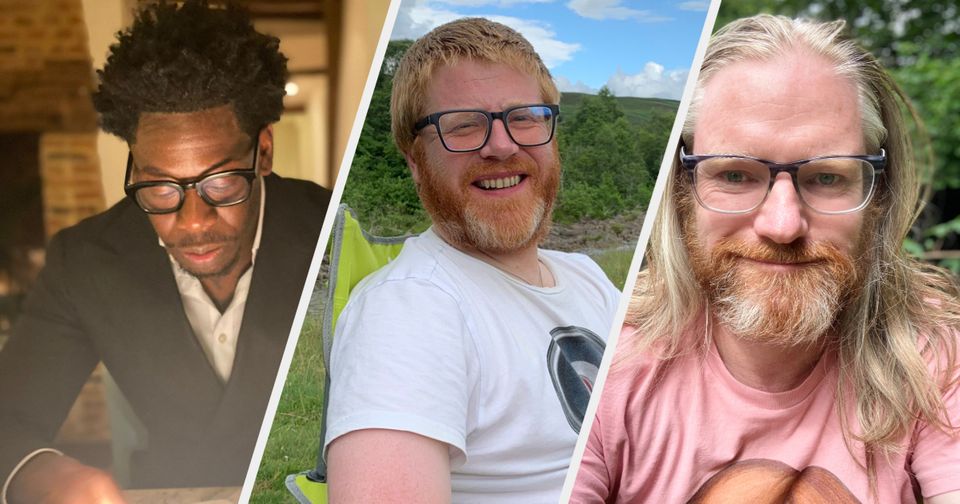<div class="js-react-hydrator" data-component-name="YouTube" data-component-id="8660" data-component-props="{"itemType":"video","index":5,"contentIndexByType":1,"contentListType":"embed","code":"
","type":"video","meta":{"author":"ZOE","author_url":"https://www.youtube.com/channel/UCa09am-cOsC-FSgr_nLkFFA","cache_age":86400,"description":" Make smarter food choices. Become a member at http://zoe.com \n\nWhat if optimizing your sleep could significantly extend your lifespan?\n\nIn this episode, we dive into the science of longevity with Bryan Johnson, the entrepreneur spending millions to reverse aging, and Professor Tim Spector, one of the world’s top 100 most-cited scientists and an expert in nutrition and the gut microbiome.\n\nBryan has dedicated his life – and his body – to testing cutting-edge health interventions to slow down aging. His meticulous approach to sleep, diet, and exercise has sparked global debate. But how much of it is backed by science? Tim Spector joins the conversation to separate fact from fiction, revealing what actually works when it comes to sleep, longevity, and optimizing health.\n\n
Make smarter food choices. Become a member at http://zoe.com \n\nWhat if optimizing your sleep could significantly extend your lifespan?\n\nIn this episode, we dive into the science of longevity with Bryan Johnson, the entrepreneur spending millions to reverse aging, and Professor Tim Spector, one of the world’s top 100 most-cited scientists and an expert in nutrition and the gut microbiome.\n\nBryan has dedicated his life – and his body – to testing cutting-edge health interventions to slow down aging. His meticulous approach to sleep, diet, and exercise has sparked global debate. But how much of it is backed by science? Tim Spector joins the conversation to separate fact from fiction, revealing what actually works when it comes to sleep, longevity, and optimizing health.\n\n Try our new plant based wholefood supplement – Daily30: https://zoe.com/daily30?utm_medium=zoe_podcast&utm_source=podcast_platform&utm_campaign=d30\n\nFollow ZOE on Instagram | https://www.instagram.com/zoe/\n\nTimecodes\n00:00 No.1 anti aging hack\n02:05 Quickfire questions\n04:01 Bryan’s longevity protocol\n06:20 Biological age markers\n08:16 How to measure aging\n13:40 Can AI help stop aging?\n18:50 What science can we trust?\n21:40 Bryan’s self-experiments\n25:40 The most surprising sleep discovery\n31:20 The McDonald’s diet\n34:10 How to try this yourself\n37:15 Transfusing his son’s blood\n39:50 Microbiome supplement\n41:26 Bryan’s daily diet\n46:30 Truth about vitamin supplements\n\n
Try our new plant based wholefood supplement – Daily30: https://zoe.com/daily30?utm_medium=zoe_podcast&utm_source=podcast_platform&utm_campaign=d30\n\nFollow ZOE on Instagram | https://www.instagram.com/zoe/\n\nTimecodes\n00:00 No.1 anti aging hack\n02:05 Quickfire questions\n04:01 Bryan’s longevity protocol\n06:20 Biological age markers\n08:16 How to measure aging\n13:40 Can AI help stop aging?\n18:50 What science can we trust?\n21:40 Bryan’s self-experiments\n25:40 The most surprising sleep discovery\n31:20 The McDonald’s diet\n34:10 How to try this yourself\n37:15 Transfusing his son’s blood\n39:50 Microbiome supplement\n41:26 Bryan’s daily diet\n46:30 Truth about vitamin supplements\n\n Books by our ZOE Scientists\nThe Food For Life Cookbook | https://amzn.to/4amfIMX\nEvery Body Should Know This by Dr Federica Amati | https://amzn.to/4blJsLg\nFood For Life by Prof. Tim Spector | https://amzn.to/4amZinu\n\nFree resources from ZOE:\nLive Healthier: Top 10 Tips From ZOE Science & Nutrition | https://zoe.com/freeguide\nGut Guide – For a Healthier Microbiome in Weeks | https://zoe.com/gutguide\n\nMentioned in today’s episode\nReviewing the cardiovascular and other health effects of olive oil: Limitations and future directions of current supplement formulations, 2023, published in Nutrition, Metabolism and Cardiovascular Diseases https://pmc.ncbi.nlm.nih.gov/articles/PMC10346407/\n\nMortality Associated with Short Sleep Duration: The Evidence, The Possible Mechanisms, and The Future, 2011, published in Sleep Medicine Reviews https://www.sciencedirect.com/science/article/abs/pii/S093947532300337X\n\nSleep regularity is a stronger predictor of mortality risk than sleep duration: A prospective cohort study, 2024, published in Sleep https://academic.oup.com/sleep/article/47/1/zsad253/7280269\n\nObjectively Assessed Cardiorespiratory Fitness and All-Cause Mortality Risk, 2022, published in Mayo Clinic Proceedings https://www.mayoclinicproceedings.org/article/S0025-6196(22)00133-1/abstract\n\n\nHave feedback or a topic you’d like us to cover? Let us know here: https://gf6hx47iu5g.typeform.com/topicsuggestion\n\nEpisode transcripts are available here: https://zoe.com/learn/category/podcasts","options":{"_cc_load_policy":{"label":"Closed captions","value":false},"_end":{"label":"End on","placeholder":"ex.: 11, 1m10s","value":""},"_start":{"label":"Start from","placeholder":"ex.: 11, 1m10s","value":""},"click_to_play":{"label":"Add your own player cover","value":false}},"provider_name":"YouTube","thumbnail_height":720,"thumbnail_url":"https://i.ytimg.com/vi/PH-PjiE7ep4/maxresdefault.jpg","thumbnail_width":1280,"title":"Bryan Johnson: The man who spent $10m to cheat death and age in reverse | Prof. Tim Spector","type":"video","url":"https://www.youtube.com/watch?v=PH-PjiE7ep4","version":"1.0"},"flags":[],"enhancements":{"fonts":{"primary":{},"accent":{},"caption":{}}},"fullBleed":false,"options":{"theme":"life","device":"desktop","editionInfo":{"id":"uk","name":"U.K.","link":"https://www.huffingtonpost.co.uk","locale":"en_GB"},"originalEdition":"uk","isMapi":false,"isAmp":false,"isAdsFree":false,"isVideoEntry":false,"isEntry":true,"isMt":false,"entryId":"67dd6b36e4b008723252f5db","entryPermalink":"https://www.huffingtonpost.co.uk/entry/resting-heart-rate-longevity_uk_67dd6b36e4b008723252f5db","entryTagsList":"health,ageing,longevity","sectionSlug":"lifestyle","deptSlug":null,"sectionRedirectUrl":null,"subcategories":"","isWide":false,"headerOverride":null,"noVideoAds":false,"disableFloat":false,"isNative":false,"commercialVideo":{"provider":"custom","site_and_category":"uk.lifestyle","package":null},"isHighline":false,"vidibleConfigValues":{"cid":"60afc140cf94592c45d7390c","disabledWithMapiEntries":false,"overrides":{"all":"60b8e525cdd90620331baaf4"},"whitelisted":["56c5f12ee4b03a39c93c9439","56c6056ee4b01f2b7e1b5f35","59bfee7f9e451049f87f550b","5acccbaac269d609ef44c529","570278d2e4b070ff77b98217","57027b4be4b070ff77b98d5c","56fe95c4e4b0041c4242016b","570279cfe4b06d08e3629954","5ba9e8821c2e65639162ccf1","5bcd9904821576674bc55ced","5d076ca127f25f504327c72e","5b35266b158f855373e28256","5ebac2e8abddfb04f877dff2","60b8e525cdd90620331baaf4","60b64354b171b7444beaff4d","60d0d8e09340d7032ad0fb1a","60d0d90f9340d7032ad0fbeb","60d0d9949340d7032ad0fed3","60d0d9f99340d7032ad10113","60d0daa69340d7032ad104cf","60d0de02b627221e9d819408"],"playlists":{"default":"57bc306888d2ff1a7f6b5579","news":"56c6dbcee4b04edee8beb49c","politics":"56c6dbcee4b04edee8beb49c","entertainment":"56c6e7f2e4b0983aa64c60fc","tech":"56c6f70ae4b043c5bdcaebf9","parents":"56cc65c2e4b0239099455b42","lifestyle":"56cc66a9e4b01f81ef94e98c"},"playerUpdates":{"56c6056ee4b01f2b7e1b5f35":"60b8e525cdd90620331baaf4","56c5f12ee4b03a39c93c9439":"60d0d8e09340d7032ad0fb1a","59bfee7f9e451049f87f550b":"60d0d90f9340d7032ad0fbeb","5acccbaac269d609ef44c529":"60d0d9949340d7032ad0fed3","5bcd9904821576674bc55ced":"60d0d9f99340d7032ad10113","5d076ca127f25f504327c72e":"60d0daa69340d7032ad104cf","5ebac2e8abddfb04f877dff2":"60d0de02b627221e9d819408"}},"connatixConfigValues":{"defaultPlayer":"8b034f64-513c-4987-b16f-42d6008f7feb","clickToPlayPlayer":"5a777b9b-81fe-41a6-8302-59e9953ee8a2","videoPagePlayer":"19654b65-409c-4b38-90db-80cbdea02cf4"},"topConnatixThumnbailSrc":"data:image/png;base64,iVBORw0KGgoAAAANSUhEUgAAAAEAAAABCAQAAAC1HAwCAAAAC0lEQVR42mNkYAAAAAYAAjCB0C8AAAAASUVORK5CYII=","customAmpComponents":[],"ampAssetsUrl":"https://amp.assets.huffpost.com","videoTraits":null,"positionInUnitCounts":{"buzz_head":{"count":0},"buzz_body":{"count":0},"buzz_bottom":{"count":0}},"positionInSubUnitCounts":{"article_body":{"count":13},"blog_summary":{"count":0},"before_you_go_content":{"count":0}},"connatixCountsHelper":{"count":0},"buzzfeedTracking":{"context_page_id":"67dd6b36e4b008723252f5db","context_page_type":"buzz","destination":"huffpost","mode":"desktop","page_edition":"en-uk"},"tags":[{"name":"Health","slug":"health","links":{"relativeLink":"news/health","permalink":"https://www.huffingtonpost.co.uk/news/health","mobileWebLink":"https://www.huffingtonpost.co.uk/news/health"},"section":{"title":"Life","slug":"lifestyle"},"topic":{"title":"Health","slug":"health","overridesSectionLabel":false},"url":"https://www.huffingtonpost.co.uk/news/health/"},{"name":"ageing","slug":"ageing","links":{"relativeLink":"news/ageing","permalink":"https://www.huffingtonpost.co.uk/news/ageing","mobileWebLink":"https://www.huffingtonpost.co.uk/news/ageing"},"url":"https://www.huffingtonpost.co.uk/news/ageing/"},{"name":"longevity","slug":"longevity","links":{"relativeLink":"news/longevity","permalink":"https://www.huffingtonpost.co.uk/news/longevity","mobileWebLink":"https://www.huffingtonpost.co.uk/news/longevity"},"url":"https://www.huffingtonpost.co.uk/news/longevity/"}],"isLiveblogLive":null,"isLiveblog":false,"cetUnit":"buzz_body","bodyAds":["
Books by our ZOE Scientists\nThe Food For Life Cookbook | https://amzn.to/4amfIMX\nEvery Body Should Know This by Dr Federica Amati | https://amzn.to/4blJsLg\nFood For Life by Prof. Tim Spector | https://amzn.to/4amZinu\n\nFree resources from ZOE:\nLive Healthier: Top 10 Tips From ZOE Science & Nutrition | https://zoe.com/freeguide\nGut Guide – For a Healthier Microbiome in Weeks | https://zoe.com/gutguide\n\nMentioned in today’s episode\nReviewing the cardiovascular and other health effects of olive oil: Limitations and future directions of current supplement formulations, 2023, published in Nutrition, Metabolism and Cardiovascular Diseases https://pmc.ncbi.nlm.nih.gov/articles/PMC10346407/\n\nMortality Associated with Short Sleep Duration: The Evidence, The Possible Mechanisms, and The Future, 2011, published in Sleep Medicine Reviews https://www.sciencedirect.com/science/article/abs/pii/S093947532300337X\n\nSleep regularity is a stronger predictor of mortality risk than sleep duration: A prospective cohort study, 2024, published in Sleep https://academic.oup.com/sleep/article/47/1/zsad253/7280269\n\nObjectively Assessed Cardiorespiratory Fitness and All-Cause Mortality Risk, 2022, published in Mayo Clinic Proceedings https://www.mayoclinicproceedings.org/article/S0025-6196(22)00133-1/abstract\n\n\nHave feedback or a topic you’d like us to cover? Let us know here: https://gf6hx47iu5g.typeform.com/topicsuggestion\n\nEpisode transcripts are available here: https://zoe.com/learn/category/podcasts","options":{"_cc_load_policy":{"label":"Closed captions","value":false},"_end":{"label":"End on","placeholder":"ex.: 11, 1m10s","value":""},"_start":{"label":"Start from","placeholder":"ex.: 11, 1m10s","value":""},"click_to_play":{"label":"Add your own player cover","value":false}},"provider_name":"YouTube","thumbnail_height":720,"thumbnail_url":"https://i.ytimg.com/vi/PH-PjiE7ep4/maxresdefault.jpg","thumbnail_width":1280,"title":"Bryan Johnson: The man who spent $10m to cheat death and age in reverse | Prof. Tim Spector","type":"video","url":"https://www.youtube.com/watch?v=PH-PjiE7ep4","version":"1.0"},"flags":[],"enhancements":{"fonts":{"primary":{},"accent":{},"caption":{}}},"fullBleed":false,"options":{"theme":"life","device":"desktop","editionInfo":{"id":"uk","name":"U.K.","link":"https://www.huffingtonpost.co.uk","locale":"en_GB"},"originalEdition":"uk","isMapi":false,"isAmp":false,"isAdsFree":false,"isVideoEntry":false,"isEntry":true,"isMt":false,"entryId":"67dd6b36e4b008723252f5db","entryPermalink":"https://www.huffingtonpost.co.uk/entry/resting-heart-rate-longevity_uk_67dd6b36e4b008723252f5db","entryTagsList":"health,ageing,longevity","sectionSlug":"lifestyle","deptSlug":null,"sectionRedirectUrl":null,"subcategories":"","isWide":false,"headerOverride":null,"noVideoAds":false,"disableFloat":false,"isNative":false,"commercialVideo":{"provider":"custom","site_and_category":"uk.lifestyle","package":null},"isHighline":false,"vidibleConfigValues":{"cid":"60afc140cf94592c45d7390c","disabledWithMapiEntries":false,"overrides":{"all":"60b8e525cdd90620331baaf4"},"whitelisted":["56c5f12ee4b03a39c93c9439","56c6056ee4b01f2b7e1b5f35","59bfee7f9e451049f87f550b","5acccbaac269d609ef44c529","570278d2e4b070ff77b98217","57027b4be4b070ff77b98d5c","56fe95c4e4b0041c4242016b","570279cfe4b06d08e3629954","5ba9e8821c2e65639162ccf1","5bcd9904821576674bc55ced","5d076ca127f25f504327c72e","5b35266b158f855373e28256","5ebac2e8abddfb04f877dff2","60b8e525cdd90620331baaf4","60b64354b171b7444beaff4d","60d0d8e09340d7032ad0fb1a","60d0d90f9340d7032ad0fbeb","60d0d9949340d7032ad0fed3","60d0d9f99340d7032ad10113","60d0daa69340d7032ad104cf","60d0de02b627221e9d819408"],"playlists":{"default":"57bc306888d2ff1a7f6b5579","news":"56c6dbcee4b04edee8beb49c","politics":"56c6dbcee4b04edee8beb49c","entertainment":"56c6e7f2e4b0983aa64c60fc","tech":"56c6f70ae4b043c5bdcaebf9","parents":"56cc65c2e4b0239099455b42","lifestyle":"56cc66a9e4b01f81ef94e98c"},"playerUpdates":{"56c6056ee4b01f2b7e1b5f35":"60b8e525cdd90620331baaf4","56c5f12ee4b03a39c93c9439":"60d0d8e09340d7032ad0fb1a","59bfee7f9e451049f87f550b":"60d0d90f9340d7032ad0fbeb","5acccbaac269d609ef44c529":"60d0d9949340d7032ad0fed3","5bcd9904821576674bc55ced":"60d0d9f99340d7032ad10113","5d076ca127f25f504327c72e":"60d0daa69340d7032ad104cf","5ebac2e8abddfb04f877dff2":"60d0de02b627221e9d819408"}},"connatixConfigValues":{"defaultPlayer":"8b034f64-513c-4987-b16f-42d6008f7feb","clickToPlayPlayer":"5a777b9b-81fe-41a6-8302-59e9953ee8a2","videoPagePlayer":"19654b65-409c-4b38-90db-80cbdea02cf4"},"topConnatixThumnbailSrc":"data:image/png;base64,iVBORw0KGgoAAAANSUhEUgAAAAEAAAABCAQAAAC1HAwCAAAAC0lEQVR42mNkYAAAAAYAAjCB0C8AAAAASUVORK5CYII=","customAmpComponents":[],"ampAssetsUrl":"https://amp.assets.huffpost.com","videoTraits":null,"positionInUnitCounts":{"buzz_head":{"count":0},"buzz_body":{"count":0},"buzz_bottom":{"count":0}},"positionInSubUnitCounts":{"article_body":{"count":13},"blog_summary":{"count":0},"before_you_go_content":{"count":0}},"connatixCountsHelper":{"count":0},"buzzfeedTracking":{"context_page_id":"67dd6b36e4b008723252f5db","context_page_type":"buzz","destination":"huffpost","mode":"desktop","page_edition":"en-uk"},"tags":[{"name":"Health","slug":"health","links":{"relativeLink":"news/health","permalink":"https://www.huffingtonpost.co.uk/news/health","mobileWebLink":"https://www.huffingtonpost.co.uk/news/health"},"section":{"title":"Life","slug":"lifestyle"},"topic":{"title":"Health","slug":"health","overridesSectionLabel":false},"url":"https://www.huffingtonpost.co.uk/news/health/"},{"name":"ageing","slug":"ageing","links":{"relativeLink":"news/ageing","permalink":"https://www.huffingtonpost.co.uk/news/ageing","mobileWebLink":"https://www.huffingtonpost.co.uk/news/ageing"},"url":"https://www.huffingtonpost.co.uk/news/ageing/"},{"name":"longevity","slug":"longevity","links":{"relativeLink":"news/longevity","permalink":"https://www.huffingtonpost.co.uk/news/longevity","mobileWebLink":"https://www.huffingtonpost.co.uk/news/longevity"},"url":"https://www.huffingtonpost.co.uk/news/longevity/"}],"isLiveblogLive":null,"isLiveblog":false,"cetUnit":"buzz_body","bodyAds":["
\r\n\r\n HPGam.cmd.push(function(){\r\n\t\treturn HPGam.render(\"inline-1\", \"entry_paragraph_1\", false, false);\r\n });\r\n\r\n","
\r\n\r\n HPGam.cmd.push(function(){\r\n\t\treturn HPGam.render(\"inline\", \"entry_paragraph_2\", false, false);\r\n });\r\n\r\n","
\r\n\r\n HPGam.cmd.push(function(){\r\n\t\treturn HPGam.render(\"inline-2\", \"entry_paragraph_3\", false, false);\r\n });\r\n\r\n","
\r\n\r\n HPGam.cmd.push(function(){\r\n\t\treturn HPGam.render(\"inline-infinite\", \"repeating_dynamic_display\", false, false);\r\n });\r\n\r\n"],"adCount":0},"isCollectionEmbed":false}”>





 Make smarter food choices. Become a member at http://zoe.com \n\nWhat if optimizing your sleep could significantly extend your lifespan?\n\nIn this episode, we dive into the science of longevity with Bryan Johnson, the entrepreneur spending millions to reverse aging, and Professor Tim Spector, one of the world’s top 100 most-cited scientists and an expert in nutrition and the gut microbiome.\n\nBryan has dedicated his life – and his body – to testing cutting-edge health interventions to slow down aging. His meticulous approach to sleep, diet, and exercise has sparked global debate. But how much of it is backed by science? Tim Spector joins the conversation to separate fact from fiction, revealing what actually works when it comes to sleep, longevity, and optimizing health.\n\n
Make smarter food choices. Become a member at http://zoe.com \n\nWhat if optimizing your sleep could significantly extend your lifespan?\n\nIn this episode, we dive into the science of longevity with Bryan Johnson, the entrepreneur spending millions to reverse aging, and Professor Tim Spector, one of the world’s top 100 most-cited scientists and an expert in nutrition and the gut microbiome.\n\nBryan has dedicated his life – and his body – to testing cutting-edge health interventions to slow down aging. His meticulous approach to sleep, diet, and exercise has sparked global debate. But how much of it is backed by science? Tim Spector joins the conversation to separate fact from fiction, revealing what actually works when it comes to sleep, longevity, and optimizing health.\n\n Try our new plant based wholefood supplement – Daily30: https://zoe.com/daily30?utm_medium=zoe_podcast&utm_source=podcast_platform&utm_campaign=d30\n\nFollow ZOE on Instagram | https://www.instagram.com/zoe/\n\nTimecodes\n00:00 No.1 anti aging hack\n02:05 Quickfire questions\n04:01 Bryan’s longevity protocol\n06:20 Biological age markers\n08:16 How to measure aging\n13:40 Can AI help stop aging?\n18:50 What science can we trust?\n21:40 Bryan’s self-experiments\n25:40 The most surprising sleep discovery\n31:20 The McDonald’s diet\n34:10 How to try this yourself\n37:15 Transfusing his son’s blood\n39:50 Microbiome supplement\n41:26 Bryan’s daily diet\n46:30 Truth about vitamin supplements\n\n
Try our new plant based wholefood supplement – Daily30: https://zoe.com/daily30?utm_medium=zoe_podcast&utm_source=podcast_platform&utm_campaign=d30\n\nFollow ZOE on Instagram | https://www.instagram.com/zoe/\n\nTimecodes\n00:00 No.1 anti aging hack\n02:05 Quickfire questions\n04:01 Bryan’s longevity protocol\n06:20 Biological age markers\n08:16 How to measure aging\n13:40 Can AI help stop aging?\n18:50 What science can we trust?\n21:40 Bryan’s self-experiments\n25:40 The most surprising sleep discovery\n31:20 The McDonald’s diet\n34:10 How to try this yourself\n37:15 Transfusing his son’s blood\n39:50 Microbiome supplement\n41:26 Bryan’s daily diet\n46:30 Truth about vitamin supplements\n\n Books by our ZOE Scientists\nThe Food For Life Cookbook | https://amzn.to/4amfIMX\nEvery Body Should Know This by Dr Federica Amati | https://amzn.to/4blJsLg\nFood For Life by Prof. Tim Spector | https://amzn.to/4amZinu\n\nFree resources from ZOE:\nLive Healthier: Top 10 Tips From ZOE Science & Nutrition | https://zoe.com/freeguide\nGut Guide – For a Healthier Microbiome in Weeks | https://zoe.com/gutguide\n\nMentioned in today’s episode\nReviewing the cardiovascular and other health effects of olive oil: Limitations and future directions of current supplement formulations, 2023, published in Nutrition, Metabolism and Cardiovascular Diseases https://pmc.ncbi.nlm.nih.gov/articles/PMC10346407/\n\nMortality Associated with Short Sleep Duration: The Evidence, The Possible Mechanisms, and The Future, 2011, published in Sleep Medicine Reviews https://www.sciencedirect.com/science/article/abs/pii/S093947532300337X\n\nSleep regularity is a stronger predictor of mortality risk than sleep duration: A prospective cohort study, 2024, published in Sleep https://academic.oup.com/sleep/article/47/1/zsad253/7280269\n\nObjectively Assessed Cardiorespiratory Fitness and All-Cause Mortality Risk, 2022, published in Mayo Clinic Proceedings https://www.mayoclinicproceedings.org/article/S0025-6196(22)00133-1/abstract\n\n\nHave feedback or a topic you’d like us to cover? Let us know here: https://gf6hx47iu5g.typeform.com/topicsuggestion\n\nEpisode transcripts are available here: https://zoe.com/learn/category/podcasts","options":{"_cc_load_policy":{"label":"Closed captions","value":false},"_end":{"label":"End on","placeholder":"ex.: 11, 1m10s","value":""},"_start":{"label":"Start from","placeholder":"ex.: 11, 1m10s","value":""},"click_to_play":{"label":"Add your own player cover","value":false}},"provider_name":"YouTube","thumbnail_height":720,"thumbnail_url":"https://i.ytimg.com/vi/PH-PjiE7ep4/maxresdefault.jpg","thumbnail_width":1280,"title":"Bryan Johnson: The man who spent $10m to cheat death and age in reverse | Prof. Tim Spector","type":"video","url":"https://www.youtube.com/watch?v=PH-PjiE7ep4","version":"1.0"},"flags":[],"enhancements":{"fonts":{"primary":{},"accent":{},"caption":{}}},"fullBleed":false,"options":{"theme":"life","device":"desktop","editionInfo":{"id":"uk","name":"U.K.","link":"https://www.huffingtonpost.co.uk","locale":"en_GB"},"originalEdition":"uk","isMapi":false,"isAmp":false,"isAdsFree":false,"isVideoEntry":false,"isEntry":true,"isMt":false,"entryId":"67dd6b36e4b008723252f5db","entryPermalink":"https://www.huffingtonpost.co.uk/entry/resting-heart-rate-longevity_uk_67dd6b36e4b008723252f5db","entryTagsList":"health,ageing,longevity","sectionSlug":"lifestyle","deptSlug":null,"sectionRedirectUrl":null,"subcategories":"","isWide":false,"headerOverride":null,"noVideoAds":false,"disableFloat":false,"isNative":false,"commercialVideo":{"provider":"custom","site_and_category":"uk.lifestyle","package":null},"isHighline":false,"vidibleConfigValues":{"cid":"60afc140cf94592c45d7390c","disabledWithMapiEntries":false,"overrides":{"all":"60b8e525cdd90620331baaf4"},"whitelisted":["56c5f12ee4b03a39c93c9439","56c6056ee4b01f2b7e1b5f35","59bfee7f9e451049f87f550b","5acccbaac269d609ef44c529","570278d2e4b070ff77b98217","57027b4be4b070ff77b98d5c","56fe95c4e4b0041c4242016b","570279cfe4b06d08e3629954","5ba9e8821c2e65639162ccf1","5bcd9904821576674bc55ced","5d076ca127f25f504327c72e","5b35266b158f855373e28256","5ebac2e8abddfb04f877dff2","60b8e525cdd90620331baaf4","60b64354b171b7444beaff4d","60d0d8e09340d7032ad0fb1a","60d0d90f9340d7032ad0fbeb","60d0d9949340d7032ad0fed3","60d0d9f99340d7032ad10113","60d0daa69340d7032ad104cf","60d0de02b627221e9d819408"],"playlists":{"default":"57bc306888d2ff1a7f6b5579","news":"56c6dbcee4b04edee8beb49c","politics":"56c6dbcee4b04edee8beb49c","entertainment":"56c6e7f2e4b0983aa64c60fc","tech":"56c6f70ae4b043c5bdcaebf9","parents":"56cc65c2e4b0239099455b42","lifestyle":"56cc66a9e4b01f81ef94e98c"},"playerUpdates":{"56c6056ee4b01f2b7e1b5f35":"60b8e525cdd90620331baaf4","56c5f12ee4b03a39c93c9439":"60d0d8e09340d7032ad0fb1a","59bfee7f9e451049f87f550b":"60d0d90f9340d7032ad0fbeb","5acccbaac269d609ef44c529":"60d0d9949340d7032ad0fed3","5bcd9904821576674bc55ced":"60d0d9f99340d7032ad10113","5d076ca127f25f504327c72e":"60d0daa69340d7032ad104cf","5ebac2e8abddfb04f877dff2":"60d0de02b627221e9d819408"}},"connatixConfigValues":{"defaultPlayer":"8b034f64-513c-4987-b16f-42d6008f7feb","clickToPlayPlayer":"5a777b9b-81fe-41a6-8302-59e9953ee8a2","videoPagePlayer":"19654b65-409c-4b38-90db-80cbdea02cf4"},"topConnatixThumnbailSrc":"data:image/png;base64,iVBORw0KGgoAAAANSUhEUgAAAAEAAAABCAQAAAC1HAwCAAAAC0lEQVR42mNkYAAAAAYAAjCB0C8AAAAASUVORK5CYII=","customAmpComponents":[],"ampAssetsUrl":"https://amp.assets.huffpost.com","videoTraits":null,"positionInUnitCounts":{"buzz_head":{"count":0},"buzz_body":{"count":0},"buzz_bottom":{"count":0}},"positionInSubUnitCounts":{"article_body":{"count":13},"blog_summary":{"count":0},"before_you_go_content":{"count":0}},"connatixCountsHelper":{"count":0},"buzzfeedTracking":{"context_page_id":"67dd6b36e4b008723252f5db","context_page_type":"buzz","destination":"huffpost","mode":"desktop","page_edition":"en-uk"},"tags":[{"name":"Health","slug":"health","links":{"relativeLink":"news/health","permalink":"https://www.huffingtonpost.co.uk/news/health","mobileWebLink":"https://www.huffingtonpost.co.uk/news/health"},"section":{"title":"Life","slug":"lifestyle"},"topic":{"title":"Health","slug":"health","overridesSectionLabel":false},"url":"https://www.huffingtonpost.co.uk/news/health/"},{"name":"ageing","slug":"ageing","links":{"relativeLink":"news/ageing","permalink":"https://www.huffingtonpost.co.uk/news/ageing","mobileWebLink":"https://www.huffingtonpost.co.uk/news/ageing"},"url":"https://www.huffingtonpost.co.uk/news/ageing/"},{"name":"longevity","slug":"longevity","links":{"relativeLink":"news/longevity","permalink":"https://www.huffingtonpost.co.uk/news/longevity","mobileWebLink":"https://www.huffingtonpost.co.uk/news/longevity"},"url":"https://www.huffingtonpost.co.uk/news/longevity/"}],"isLiveblogLive":null,"isLiveblog":false,"cetUnit":"buzz_body","bodyAds":["
Books by our ZOE Scientists\nThe Food For Life Cookbook | https://amzn.to/4amfIMX\nEvery Body Should Know This by Dr Federica Amati | https://amzn.to/4blJsLg\nFood For Life by Prof. Tim Spector | https://amzn.to/4amZinu\n\nFree resources from ZOE:\nLive Healthier: Top 10 Tips From ZOE Science & Nutrition | https://zoe.com/freeguide\nGut Guide – For a Healthier Microbiome in Weeks | https://zoe.com/gutguide\n\nMentioned in today’s episode\nReviewing the cardiovascular and other health effects of olive oil: Limitations and future directions of current supplement formulations, 2023, published in Nutrition, Metabolism and Cardiovascular Diseases https://pmc.ncbi.nlm.nih.gov/articles/PMC10346407/\n\nMortality Associated with Short Sleep Duration: The Evidence, The Possible Mechanisms, and The Future, 2011, published in Sleep Medicine Reviews https://www.sciencedirect.com/science/article/abs/pii/S093947532300337X\n\nSleep regularity is a stronger predictor of mortality risk than sleep duration: A prospective cohort study, 2024, published in Sleep https://academic.oup.com/sleep/article/47/1/zsad253/7280269\n\nObjectively Assessed Cardiorespiratory Fitness and All-Cause Mortality Risk, 2022, published in Mayo Clinic Proceedings https://www.mayoclinicproceedings.org/article/S0025-6196(22)00133-1/abstract\n\n\nHave feedback or a topic you’d like us to cover? Let us know here: https://gf6hx47iu5g.typeform.com/topicsuggestion\n\nEpisode transcripts are available here: https://zoe.com/learn/category/podcasts","options":{"_cc_load_policy":{"label":"Closed captions","value":false},"_end":{"label":"End on","placeholder":"ex.: 11, 1m10s","value":""},"_start":{"label":"Start from","placeholder":"ex.: 11, 1m10s","value":""},"click_to_play":{"label":"Add your own player cover","value":false}},"provider_name":"YouTube","thumbnail_height":720,"thumbnail_url":"https://i.ytimg.com/vi/PH-PjiE7ep4/maxresdefault.jpg","thumbnail_width":1280,"title":"Bryan Johnson: The man who spent $10m to cheat death and age in reverse | Prof. Tim Spector","type":"video","url":"https://www.youtube.com/watch?v=PH-PjiE7ep4","version":"1.0"},"flags":[],"enhancements":{"fonts":{"primary":{},"accent":{},"caption":{}}},"fullBleed":false,"options":{"theme":"life","device":"desktop","editionInfo":{"id":"uk","name":"U.K.","link":"https://www.huffingtonpost.co.uk","locale":"en_GB"},"originalEdition":"uk","isMapi":false,"isAmp":false,"isAdsFree":false,"isVideoEntry":false,"isEntry":true,"isMt":false,"entryId":"67dd6b36e4b008723252f5db","entryPermalink":"https://www.huffingtonpost.co.uk/entry/resting-heart-rate-longevity_uk_67dd6b36e4b008723252f5db","entryTagsList":"health,ageing,longevity","sectionSlug":"lifestyle","deptSlug":null,"sectionRedirectUrl":null,"subcategories":"","isWide":false,"headerOverride":null,"noVideoAds":false,"disableFloat":false,"isNative":false,"commercialVideo":{"provider":"custom","site_and_category":"uk.lifestyle","package":null},"isHighline":false,"vidibleConfigValues":{"cid":"60afc140cf94592c45d7390c","disabledWithMapiEntries":false,"overrides":{"all":"60b8e525cdd90620331baaf4"},"whitelisted":["56c5f12ee4b03a39c93c9439","56c6056ee4b01f2b7e1b5f35","59bfee7f9e451049f87f550b","5acccbaac269d609ef44c529","570278d2e4b070ff77b98217","57027b4be4b070ff77b98d5c","56fe95c4e4b0041c4242016b","570279cfe4b06d08e3629954","5ba9e8821c2e65639162ccf1","5bcd9904821576674bc55ced","5d076ca127f25f504327c72e","5b35266b158f855373e28256","5ebac2e8abddfb04f877dff2","60b8e525cdd90620331baaf4","60b64354b171b7444beaff4d","60d0d8e09340d7032ad0fb1a","60d0d90f9340d7032ad0fbeb","60d0d9949340d7032ad0fed3","60d0d9f99340d7032ad10113","60d0daa69340d7032ad104cf","60d0de02b627221e9d819408"],"playlists":{"default":"57bc306888d2ff1a7f6b5579","news":"56c6dbcee4b04edee8beb49c","politics":"56c6dbcee4b04edee8beb49c","entertainment":"56c6e7f2e4b0983aa64c60fc","tech":"56c6f70ae4b043c5bdcaebf9","parents":"56cc65c2e4b0239099455b42","lifestyle":"56cc66a9e4b01f81ef94e98c"},"playerUpdates":{"56c6056ee4b01f2b7e1b5f35":"60b8e525cdd90620331baaf4","56c5f12ee4b03a39c93c9439":"60d0d8e09340d7032ad0fb1a","59bfee7f9e451049f87f550b":"60d0d90f9340d7032ad0fbeb","5acccbaac269d609ef44c529":"60d0d9949340d7032ad0fed3","5bcd9904821576674bc55ced":"60d0d9f99340d7032ad10113","5d076ca127f25f504327c72e":"60d0daa69340d7032ad104cf","5ebac2e8abddfb04f877dff2":"60d0de02b627221e9d819408"}},"connatixConfigValues":{"defaultPlayer":"8b034f64-513c-4987-b16f-42d6008f7feb","clickToPlayPlayer":"5a777b9b-81fe-41a6-8302-59e9953ee8a2","videoPagePlayer":"19654b65-409c-4b38-90db-80cbdea02cf4"},"topConnatixThumnbailSrc":"data:image/png;base64,iVBORw0KGgoAAAANSUhEUgAAAAEAAAABCAQAAAC1HAwCAAAAC0lEQVR42mNkYAAAAAYAAjCB0C8AAAAASUVORK5CYII=","customAmpComponents":[],"ampAssetsUrl":"https://amp.assets.huffpost.com","videoTraits":null,"positionInUnitCounts":{"buzz_head":{"count":0},"buzz_body":{"count":0},"buzz_bottom":{"count":0}},"positionInSubUnitCounts":{"article_body":{"count":13},"blog_summary":{"count":0},"before_you_go_content":{"count":0}},"connatixCountsHelper":{"count":0},"buzzfeedTracking":{"context_page_id":"67dd6b36e4b008723252f5db","context_page_type":"buzz","destination":"huffpost","mode":"desktop","page_edition":"en-uk"},"tags":[{"name":"Health","slug":"health","links":{"relativeLink":"news/health","permalink":"https://www.huffingtonpost.co.uk/news/health","mobileWebLink":"https://www.huffingtonpost.co.uk/news/health"},"section":{"title":"Life","slug":"lifestyle"},"topic":{"title":"Health","slug":"health","overridesSectionLabel":false},"url":"https://www.huffingtonpost.co.uk/news/health/"},{"name":"ageing","slug":"ageing","links":{"relativeLink":"news/ageing","permalink":"https://www.huffingtonpost.co.uk/news/ageing","mobileWebLink":"https://www.huffingtonpost.co.uk/news/ageing"},"url":"https://www.huffingtonpost.co.uk/news/ageing/"},{"name":"longevity","slug":"longevity","links":{"relativeLink":"news/longevity","permalink":"https://www.huffingtonpost.co.uk/news/longevity","mobileWebLink":"https://www.huffingtonpost.co.uk/news/longevity"},"url":"https://www.huffingtonpost.co.uk/news/longevity/"}],"isLiveblogLive":null,"isLiveblog":false,"cetUnit":"buzz_body","bodyAds":["











